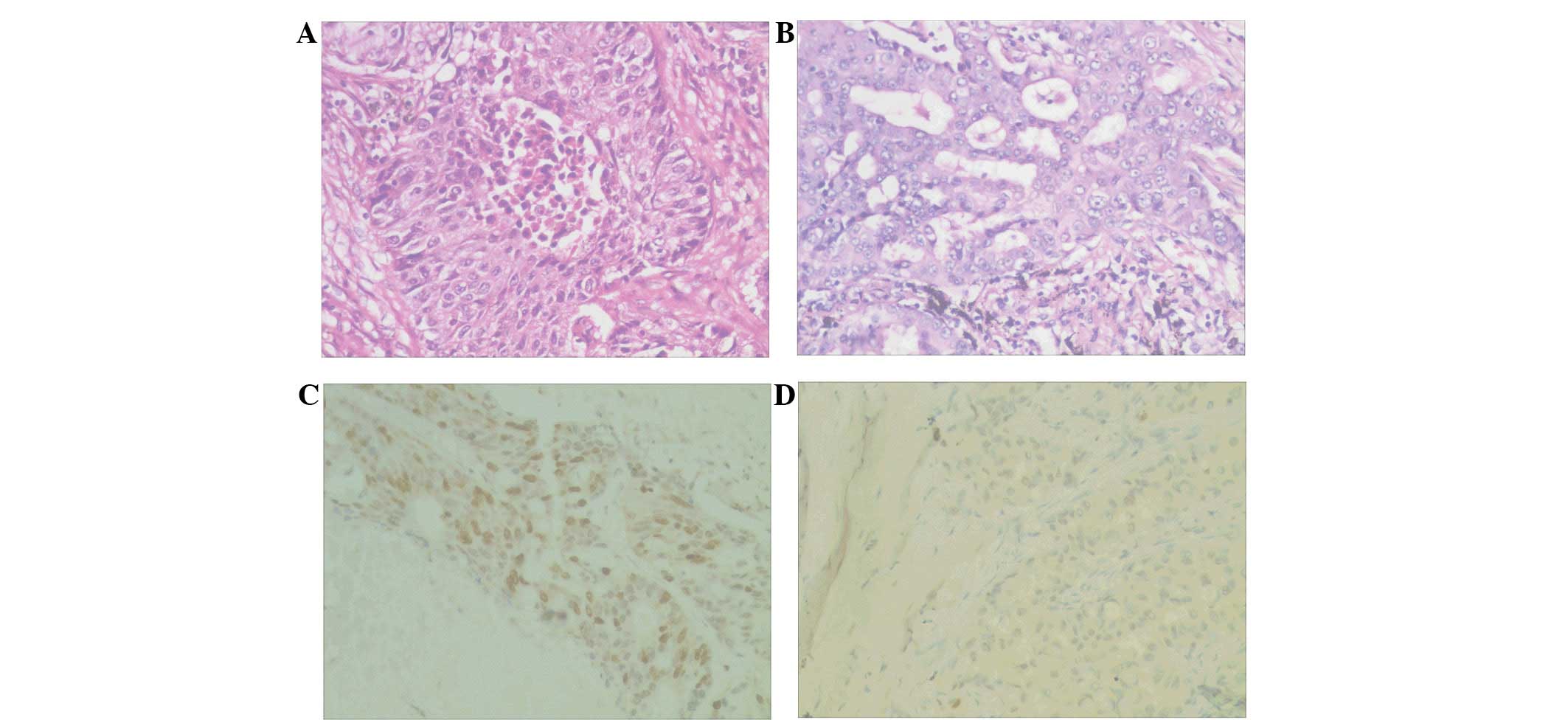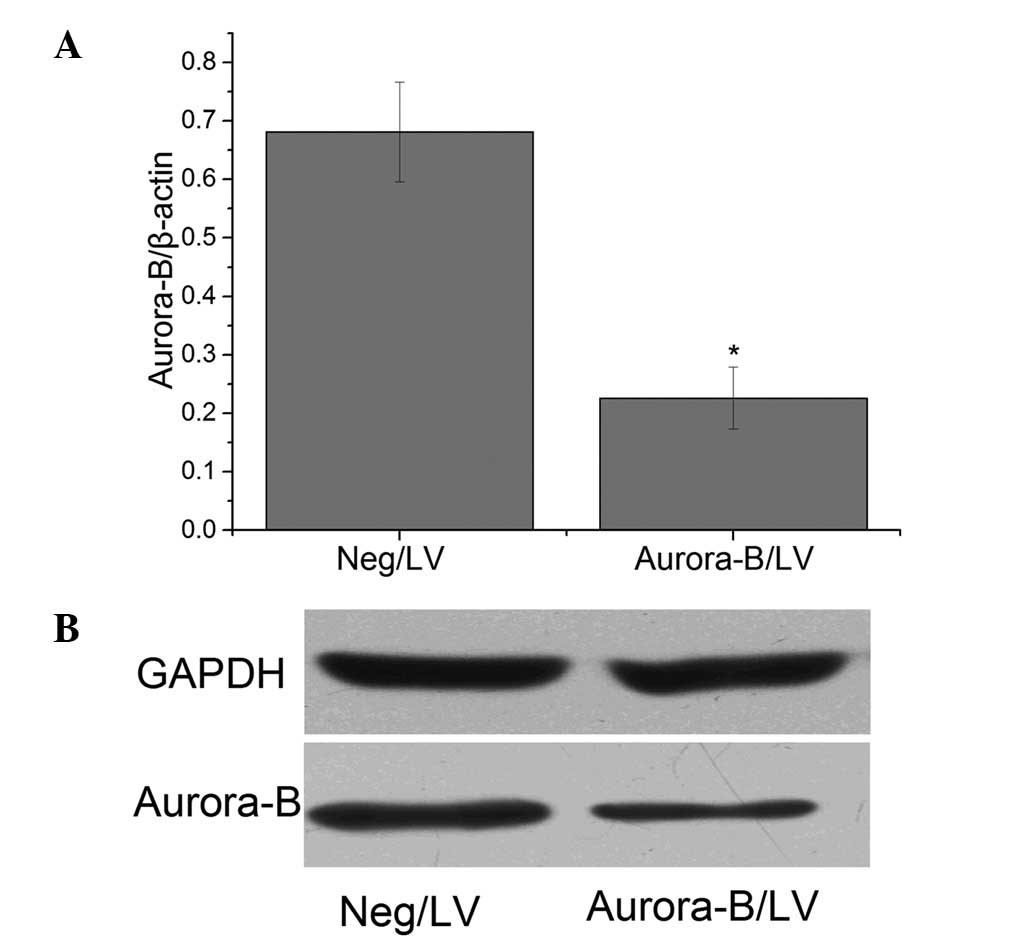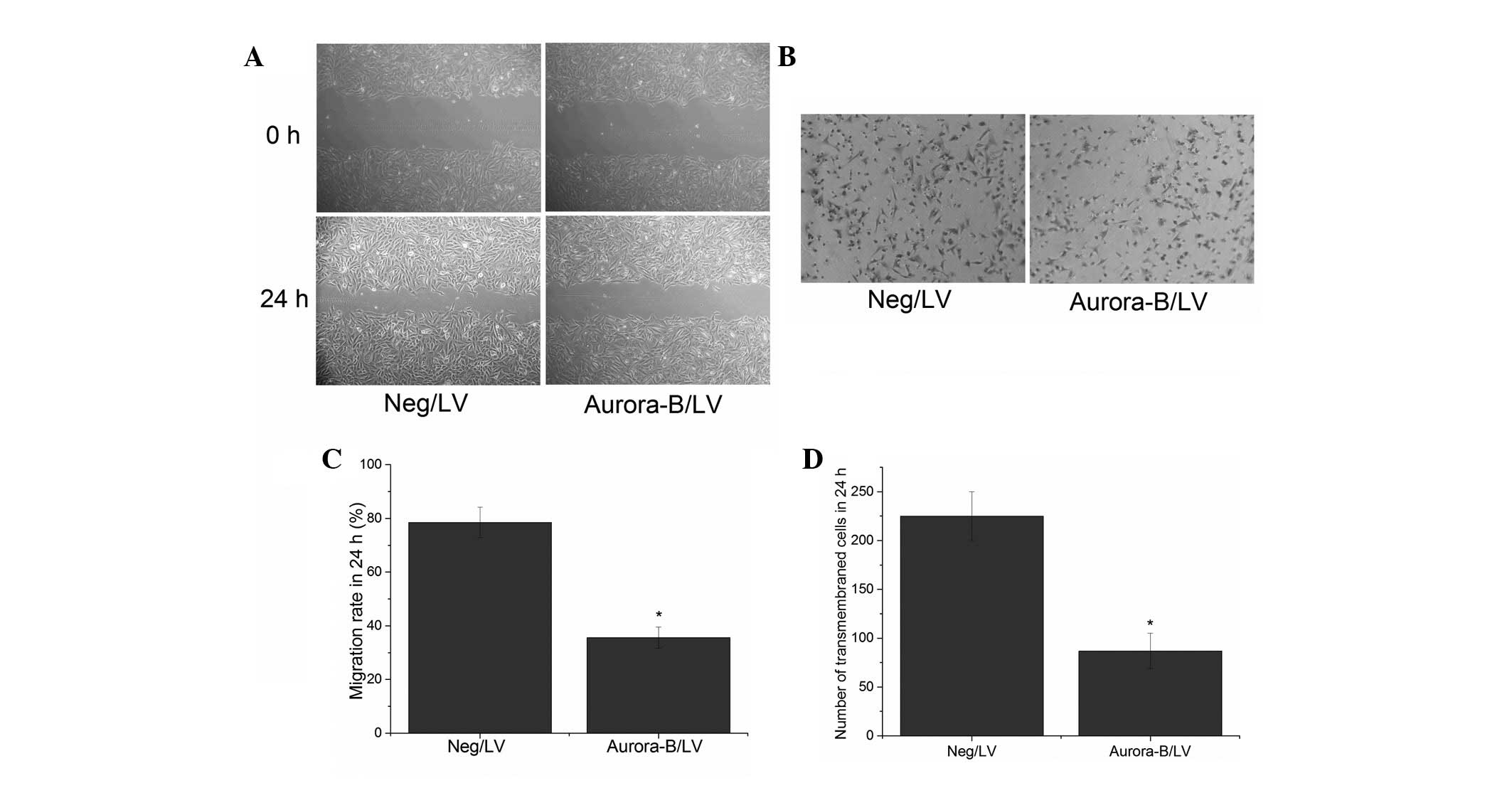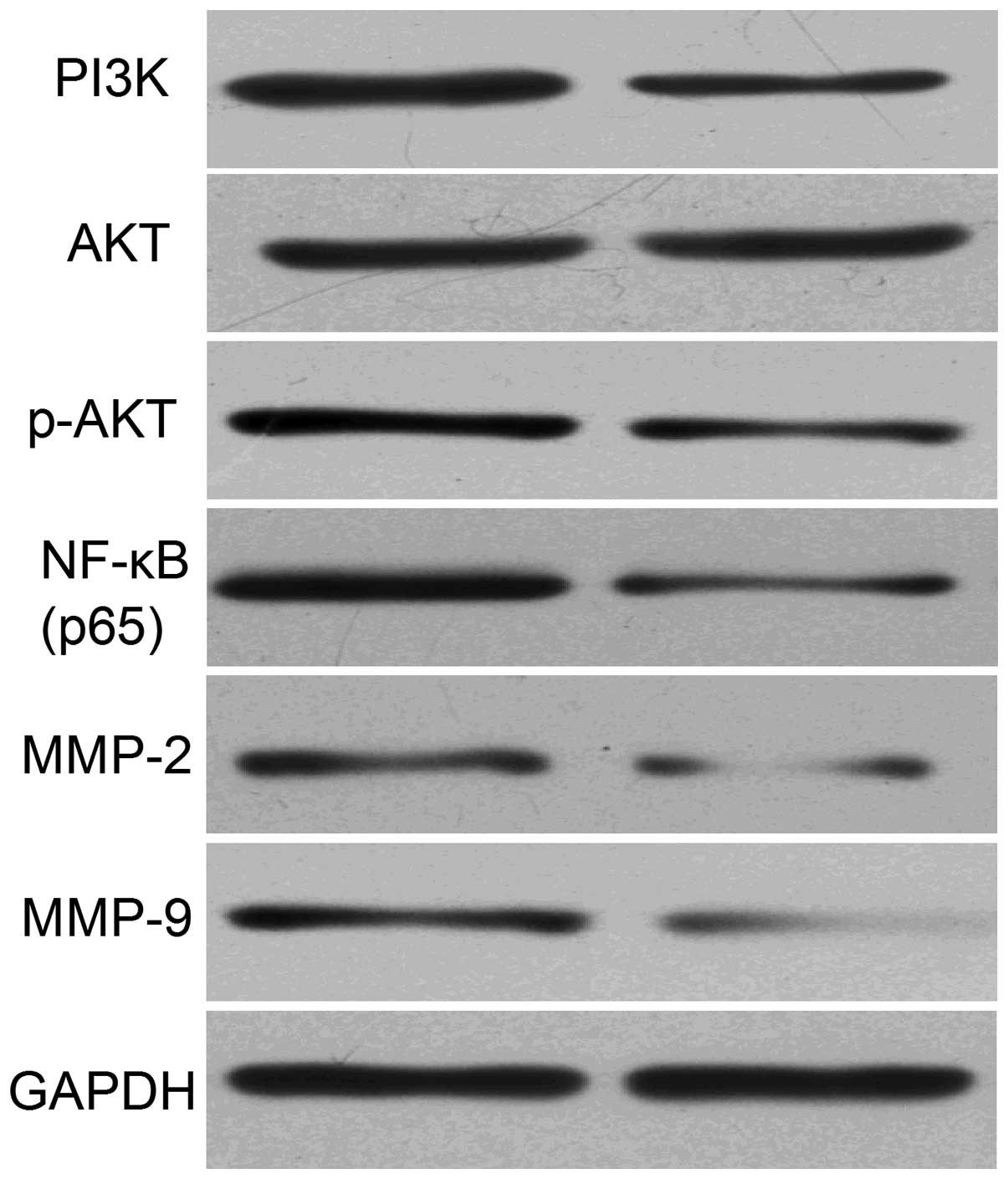|
1
|
Shi L, Tang J, Tong L and Liu Z: Risk of
interstitial lung disease with gefitinib and erlotinib in advanced
non-small cell lung cancer: a systematic review and meta-analysis
of clinical trials. Lung Cancer. 83:231–239. 2014.
|
|
2
|
Carmena M, Ruchaud S and Earnshaw WC:
Making the Auroras glow: regulation of Aurora A and B kinase
function by interacting proteins. Curr Opin Cell Biol. 21:796–805.
2009.
|
|
3
|
Ohi R, Sapra T, Howard J and Mitchison TJ:
Differentiation of cytoplasmic and meiotic spindle assembly MCAK
functions by Aurora B-dependent phosphorylation. Mol Biol Cell.
15:2895–2906. 2004.
|
|
4
|
Wang F, Ulyanova NP, Daum JR, Patnaik D,
Kateneva AV, Gorbsky GJ and Higgins JM: Haspin inhibitors reveal
centromeric functions of Aurora B in chromosome segregation. J Cell
Biol. 199:251–268. 2012.
|
|
5
|
Piekorz RP: Dissecting the role of
INCENP-Aurora B in spindle assembly checkpoint function,
chromosomal alignment and cytokinesis. Cell Cycle. 9:1678–1679.
2010.
|
|
6
|
Becker M, Stolz A, Ertych N and Bastians
H: Centromere localization of INCENP-Aurora B is sufficient to
support spindle checkpoint function. Cell Cycle. 9:1360–1372.
2010.
|
|
7
|
Li Y, Zhou W, Wei L, Jin J, Tang K, Li C,
et al: The effect of Aurora kinases on cell proliferation, cell
cycle regulation and metastasis in renal cell carcinoma. Int J
Oncol. 41:2139–2149. 2012.
|
|
8
|
Qi G, Ogawa I, Kudo Y, Miyauchi M,
Siriwardena BS, Shimamoto F, et al: Aurora-B expression and its
correlation with cell proliferation and metastasis in oral cancer.
Virchows Arch. 450:297–302. 2007.
|
|
9
|
Takeshita M, Koga T, Takayama K, Ijichi K,
Yano T, Maehara Y, et al: Aurora-B overexpression is correlated
with aneuploidy and poor prognosis in non-small cell lung cancer.
Lung Cancer. 80:85–90. 2013.
|
|
10
|
Hetland TE, Nymoen DA, Holth A, Brusegard
K, Flørenes VA, Kærn J, et al: Aurora B expression in metastatic
effusions from advanced-stage ovarian serous carcinoma is
predictive of intrinsic chemotherapy resistance. Hum Pathol.
44:777–785. 2013.
|
|
11
|
Bonet C, Giuliano S, Ohanna M, Bille K,
Allegra M, Lacour JP, et al: Aurora B is regulated by the
mitogen-activated protein kinase/extracellular signal-regulated
kinase (MAPK/ERK) signaling pathway and is a valuable potential
target in melanoma cells. J Biol Chem. 287:29887–29998. 2012.
|
|
12
|
Tuncel H, Shimamoto F, Kaneko Guangying Qi
H, Aoki E, Jikihara H, Nakai S, et al: Nuclear Aurora B and
cytoplasmic Survivin expression is involved in lymph node
metastasis of colorectal cancer. Oncol Lett. 3:1109–1114. 2012.
|
|
13
|
Honma K, Nakanishi R, Nakanoko T, Ando K,
Saeki H, Oki E, et al: Contribution of Aurora-A and -B expression
to DNA aneuploidy in gastric cancers. Surg Today. 44:454–461.
2014.
|
|
14
|
Wang WR, Yang SS, Lin JX, Zeng ZY, Liu DM
and Liu HT: Expression of Aurora-B in non-small cell lung cancer
and its clinical significance. Nan Fang Yi Ke Da Xue Xue Bao.
29:1853–1856. 2009.(In Chinese).
|
|
15
|
Ma YX and Li XZ: Effect of aurora kinase B
inhibitor AZD1152 in the treatment of cisplatin-resistant ovarian
carcinoma. Zhonghua Fu Chan Ke Za Zhi. 48:46–50. 2013.(In
Chinese).
|
|
16
|
Sak A, Stuschke M, Groneberg M, Kübler D,
Pöttgen C and Eberhardt WE: Inhibiting the aurora B kinase potently
suppresses repopulation during fractionated irradiation of human
lung cancer cell lines. Int J Radiat Oncol Biol Phys. 84:492–499.
2012.
|
|
17
|
Qi W, Liu X, Cooke LS, Persky DO, Miller
TP, Squires M and Mahadevan D: AT9283, a novel aurora kinase
inhibitor, suppresses tumor growth in aggressive B-cell lymphomas.
Int J Cancer. 130:2997–3005. 2012.
|
|
18
|
Zhang L and Zhang S: ZM447439, the Aurora
kinase B inhibitor, suppresses the growth of cervical cancer SiHa
cells and enhances the chemosensitivity to cisplatin. J Obstet
Gynaecol Res. 37:591–600. 2011.
|
|
19
|
Pohl A, Azuma M, Zhang W, Yang D, Ning Y,
Winder T, et al: Pharmacogenetic profiling of Aurora kinase B is
associated with overall survival in metastatic colorectal cancer.
Pharmacogenomics J. 11:93–99. 2011.
|
|
20
|
Lin ML, Lu YC, Chen HY, Lee CC, Chung JG
and Chen SS: Suppressing the formation of lipid raft-associated
Rac1/PI3K/Akt signaling complexes by curcumin inhibits
SDF-1α-induced invasion of human esophageal carcinoma cells. Mol
Carcinog. 53:360–379. 2014.
|
|
21
|
Xu CL, Lu XL, Yan XN, Wang HL and Chen SQ:
Effects of PI3K/Akt/NF-κB signal pathway on FSH facilitation on
cell proliferation and invasion by human epithelial ovarian cancer.
Zhonghua Fu Chan Ke Za Zhi. 47:134–138. 2012.(In Chinese).
|
|
22
|
Lin X, Zhang X, Wang Q, Li J, Zhang P,
Zhao M and Li X: Perifosine downregulates MDR1 gene expression and
reverses multidrug-resistant phenotype by inhibiting PI3K/Akt/NF-κB
signaling pathway in a human breast cancer cell line. Neoplasma.
59:248–256. 2012.
|
|
23
|
Koumakpayi IH, Le Page C, Mes-Masson AM
and Saad F: Hierarchical clustering of immunohistochemical analysis
of the activated ErbB/PI3K/Akt/NF-kappaB signalling pathway and
prognostic significance in prostate cancer. Br J Cancer.
102:1163–1173. 2010.
|
|
24
|
Song L, Xiong H, Li J, Liao W, Wang L, Wu
J and Li M: Sphingosine kinase-1 enhances resistance to apoptosis
through activation of PI3K/Akt/NF-κB pathway in human non-small
cell lung cancer. Clin Cancer Res. 17:1839–1849. 2011.
|
|
25
|
Cortes-Sempere M, Chattopadhyay S, Rovira
A, Rodriguez-Fanjul V, Belda-Iniesta C, Tapia M, et al: MKP1
repression is required for the chemosensitizing effects of
NF-kappaB and PI3K inhibitors to cisplatin in non-small cell lung
cancer. Cancer Lett. 286:206–216. 2009.
|
|
26
|
Long ZJ, Xu J, Yan M, Zhang JG, Guan Z, Xu
DZ, et al: ZM 447439 inhibition of aurora kinase induces Hep2
cancer cell apoptosis in three-dimensional culture. Cell Cycle.
7:1473–1479. 2008.
|
|
27
|
Andela VB, Gordon AH, Zotalis G, Rosier
RN, Goater JJ, Lewis GD, et al: NFkappaB: a pivotal transcription
factor in prostate cancer metastasis to bone. Clin Orthop Relat
Res. (Suppl 415): S75–S85. 2003.
|
|
28
|
Felx M, Guyot MC, Isler M, Turcotte RE,
Doyon J, Khatib AM, et al: Endothelin-1 (ET-1) promotes MMP-2 and
MMP-9 induction involving the transcription factor NF-kappaB in
human osteosarcoma. Clin Sci (Lond). 110:645–654. 2006.
|


















